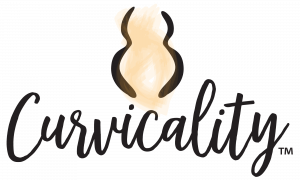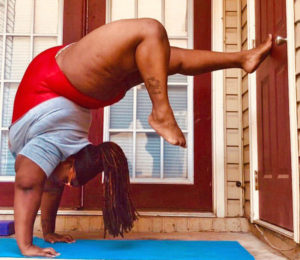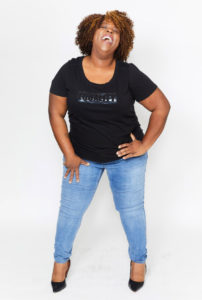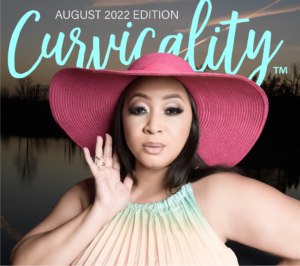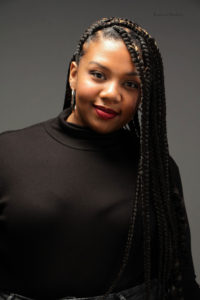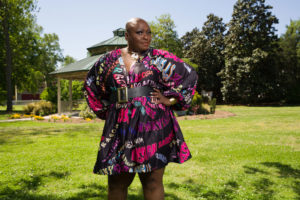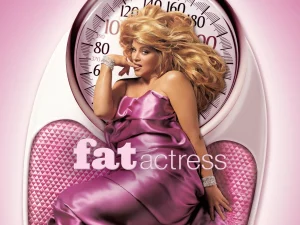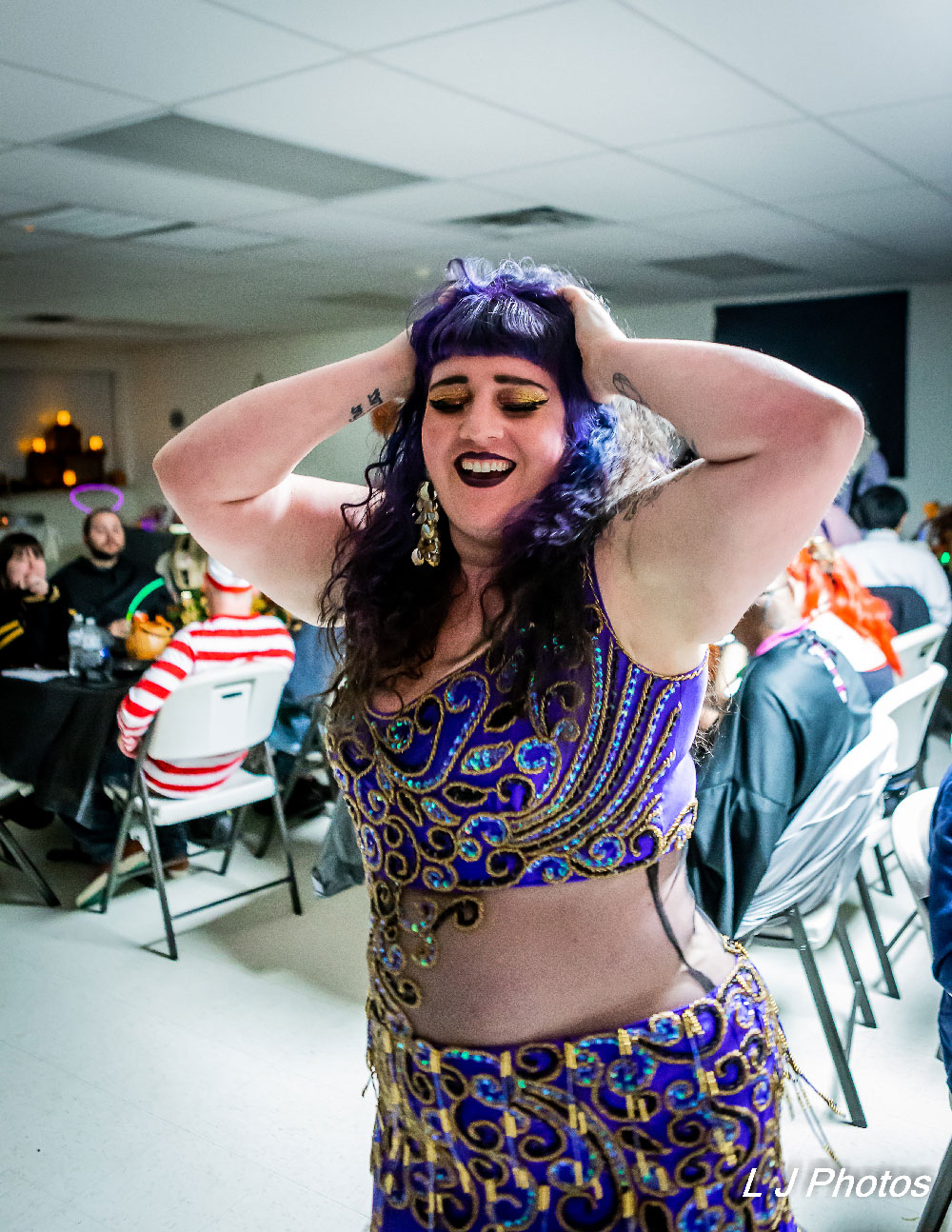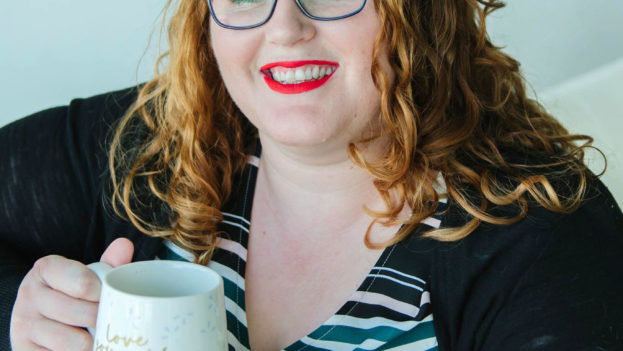
“I will never wear a dress. I always look bad.”
“I know I got a promotion, but I bet I would have gotten a better raise if I didn’t look so fat.”
“My friend didn’t answer my text. I bet she is mad at me.”
“No one ever wants to go on a second date with me.”
“I am so stupid. Why did I do that?”
Do any of these phrases sound familiar? I bet they do. Whether you have said them about yourself or someone else, I think we have all found ourselves engaging in thinking that is unnecessary, unkind and — like it or not — simply untrue. These types of thoughts are so pervasive that entire sessions of mental health education are devoted to what we call “Unhelpful Thinking Styles.”
Saying Goodbye to Unhelpful Thinking Styles: What are they?
Put simply, unhelpful thinking styles are ways of thinking that include cognitive distortions. Cognitive distortions are damaging, self-defeating and hurtful thoughts we think about ourselves and others. And more importantly, they are damaging, self-defeating and hurtful thoughts that are logically untrue, incorrect or just plain wrong.
Why do cognitive distortions matter?
Just like anything that isn’t good for us (wearing a bra with underwire poking us or tipsy-texting a guy who doesn’t respect us) it can be hard to change our ways if we don’t know what those ways are. The first step in being able to challenge (and eventually defeat) these unhelpful thinking styles is knowing what the heck they are! It’s much easier to defeat the enemy when we know what it looks like, right? Here’s the lineup:
All or nothing thinking
When I interviewed for graduate school, I was a wreck. I felt so nervous and like a huge imposter. I felt unprepared for what might be asked, and even worse, it was a group interview. That means I got to see the other applicants and hear their answers to the questions being posed. Most of our answers were from similar perspectives, but one question in particular caught me off guard and my answer was not even within the same universe as that of the other applicants. At the end of the interview I cried, because I knew I had bombed. I gave up thinking I would attend graduate school.
Two days later I was accepted. The professor thought my answers were authentic and honest. This is a perfect example of all or nothing thinking. I felt uncomfortable with one question=I failed.
Have you done this to yourself? To your body? I ate one cupcake and therefore I am a disgusting failure. Sound familiar?
Emotional reasoning
I recently received a really mean and upsetting email from someone I don’t know well. The email was full of vitriol and ugliness about me being a lot of bad things that I know for a fact I am not. I read the email, cried and felt like crap about myself. I also started to wonder if any of what he said was true. Then I started to feel guilty and I wondered if maybe I was those things. I KNEW I wasn’t. Emotional reasoning led me to feeling as terrible as that email said I was.
When we receive criticism that is not constructive, it can be easy to grab right onto that idea and hold it with us. A negative comment about a body part we had never considered before can creep into our minds and start to become the gospel. Someone calling us a mean name might make us start to question if it’s true. Oh, the fun of emotional reasoning!
Jumping to Conclusions
A few weeks ago, a friend said “Can I call you later? I want to talk to you about something.” My heart sank and my stomach churned. I immediately tried to go through a laundry list of what I might have done wrong or what I could have done to upset her. When it came time to talk, though, all she wanted to do was ask me about an upcoming event. Jumping to conclusions much?
As humans, we seem to love to fill in blanks and make assumptions based on a lot of information that doesn’t include actual fact-based evidence. For me, that left me feeling anxious and worried for hours. What has it done to you?
Labeling
At least once a week I mutter to myself “Ugh, you are thoughtless” when I forget or overlook something. I am not considering the fact that I work way too much and probably have gone way overboard on trying to accomplish things in my life. I just focus on how I occasionally forget to send an article I told someone about or set something aside that I probably could have finished by now. But the more we repeat these labels to ourselves, the more we believe them.
What negative words do you use to label yourself?
Magnification — Catastrophizing and Minimizing
A few years ago when I finally started back to college, I found out I would have to take language classes to fulfill my degree. And then I found out I had to attend language classes in person and on campus. I was honestly ready to quit school again knowing this information. The task felt so upsetting and so insurmountable. I cried about it more days than not. The time it would take, the embarrassment I would feel about being an older student, remembering how it felt to be in a classroom took me right back to being the girl who got made fun of in school for being fat and being tall and being ugly. Ugh. I spent a lot of time blowing this situation out of proportion in my mind. But guess what? I took the classes. I passed. I graduated. Did I love it? No. Was it as big of a deal as I made it out to be? Also no.
Think about times you have overblown something in your mind. Or even think about a time you have minimized something that someone else has done to you, like when we say “Oh, he didn’t really mean that,” or “Maybe she was just upset.” How did magnifying a situation make you feel?
Mental Filter
I recently started running some support groups for my internship. They are groups I developed and run with the help of a fantastic resident. The feedback we get is almost totally glowing. People enjoy the classes, they feel supported and they leave in a better state than when they started. But ONE person let me know that there were MANY ways that I could have done better as a facilitator and as a person. My mental filter wants me to focus in on that single person who provided non-constructive criticism instead of the 10 other people who provided both positive accolades AND helpful constructive criticism.
When has your mental filter led you to focus on the negative rather than enjoying the bounty of the positive?
Should/Must
I spent a lot of time being angry at myself because I SHOULD have stayed in school when I was younger. I regret that I wasted time and made poor choices. But I can’t change any of that now. All I can do is change my story going forward.
These words SHOULD leave your vocabulary right now. They are often linked to regret, things we can’t change, or ideas from others that we do not necessarily agree with or that do not align with our needs and beliefs. I should lose weight. My body should look different. I should just do what my parents/friends/spouse want me to do.
Disqualifying the Positive
When I was younger, I loved to write. I had notebooks and journals filled with all sorts of essays, songs, poems and stories. I had excelled in English classes, both in high school and college, and received good feedback from professors. I was finally brave enough to share one of my personal stories with someone I thought I could trust, another person who loved to write and aspired to be a writer for his career. He told me he thought my writing was juvenile and it was probably best that I not spend time writing anymore.
Teachers and professors gave me glowing reviews. One guy said I sucked. So I stopped writing. It took me years to build up the courage to try again, and as luck would have it, I have been published in multiple formats including blogs and magazines. And hey, I have even recorded some of my own songs. I disqualified the positive and attached myself to that one negative review.
Have you stopped wearing something you love because one person made a negative comment about it? Did you change something about yourself because of the opinion of someone else? Have you thrown away something you were creating because one person didn’t like it?
Overgeneralizing
“I am rejected for everything I try to do!” You could have heard me say that a dozen times only a few years ago. I was trying to put myself out into the world by applying to perform at festivals, get my writing published and be accepted to events. I felt like I was being rejected near constantly. I started to feel like it was the only way my life would ever be: full of rejection and failure. But that wasn’t completely true. I had been accepted to participate in events. Sure, I hadn’t been accepted to everything. But I certainly hadn’t been rejected for everything, either.
Overgeneralization can lead us to write a narrative about ourselves and our lives that is inaccurate. I’m always unlucky. I never get asked out on dates. Nothing ever goes right for me. We’ve all said these things, haven’t we?
Personalization
I can’t even list all the times I have felt the burden of responsibility for things I can’t control. This is a big one. This could include feeling guilt about how you may have caused someone to abuse you (you are NOT responsible for this!), or feeling like it is somehow your fault that someone has said something cruel to you (it is NOT!). This one is a hard habit to break, and I think, can cause the most harm.
What now?
So yeah, it’s great that we know what these distortions look like, but what the heck can we do about stopping them?
First things first. If you are using words like never, always, can’t, hate, loser or stupid, it’s possible you are dealing with one of these distortions. Reflect on the language you are using or the language in your thoughts.
Does what you are thinking make sense? Say it out loud. Write it down. Tell a trusted friend. If you say it, read it, or tell it, and it seems like it could be untrue, incorrect, or impossible, it might be a cognitive distortion.
Try to determine what is really true and what really isn’t. If you don’t know, don’t guess. If you aren’t sure, don’t make assumptions. Use the information you have to work with and try to make a judgment based on what is REAL, not just what your brain is filling in where there are blanks.
Would you present these negative ideas/thoughts/narratives to a person you love or a close friend? If you wouldn’t call your friend a loser, or if you don’t think your brother is a failure because he attended school later in life, then logically, these harmful ideas don’t apply to you, either.
Remember how many other colors there are aside from black and white. Most situations, people, experiences and events fall within a spectrum of good and bad, with few exceptions: Racism=always bad. Puppies=always good. You are neither all good nor all bad. The things you do are neither all good nor all bad.
Lastly, provide yourself some grace. The very definition of grace is “courteous goodwill, or an instance of kindness.” Give yourself the benefit of the doubt. Know that you are trying your best. Take time to be kind to yourself. Practice goodwill from the inside out.
I guess we shoulda done this a long time ago.
Rachel Micheletti
Rachel is an award-winning dancer, performer, singer, model and cosplayer from Norfolk, Virginia. She is the owner of Hipnotic World Fitness Center in Chesapeake, the only burlesque and belly dance-focused studio in the Hampton Roads area. At the studio she is an instructor in belly dance and burlesque and leads body-kindness and specialty workshops throughout the year (www.hipnoticbellydancing.com)
Along with the studio, Rachel is the manager of The Feral Showgirls, a traveling production company featuring performers of all types, from burlesque and boylesque to belly dance and beyond. The Feral Showgirls work to be a visual representation of inclusivity, representation and all the fun (www.feralshowgirls.com).
Rachel is also the lead singer/songwriter of the award-winning band Rachel and the JellyCats, an eight-piece band bringing vintage style into the modern world (www.rachelandthejellycats.
Finally, Rachel is a graduate student in mental health counseling, currently completing her internship with a local agency. Rachel hopes to develop a holistic counseling practice that incorporates body kindness, dance, performance and confidence-building to assist clients in reclaiming love for their bodies and minds.
What Unhelpful Thinking Styles are you having trouble leaving behind? Please share your thoughts in the comments!

